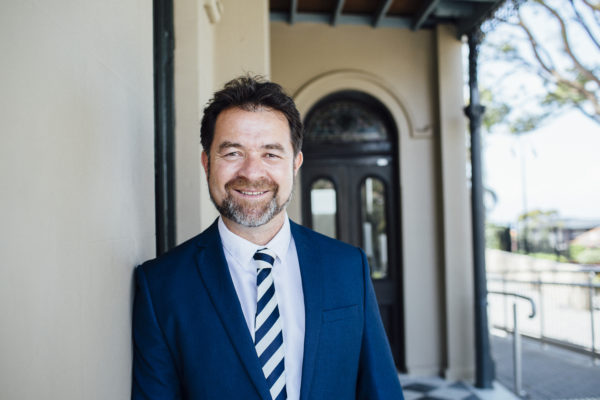
Mr Patrick Brennan, Deputy Principal - Student & Staff Wellbeing
Do you know who your sons are talking to online?
In a concerning reminder for parents, Federal Police say they’ve saved 26 children from the grips of online predators in the past 12 months in Australia. This equates to roughly two every month being rescued by The Australian Centre for Counter Child Exploitation.
Since the centre was set up by the Australian Federal Police last July, almost 4,000 reports of online sexual exploitation of children were made to the federal police. The task force has found children are being groomed to create this inappropriate content themselves. They are coerced into producing this material by online predators and then this is used to blackmail them into continuing to make more.
The AFP says the material it is seeing is becoming increasingly violent, and the children being exploited are getting younger.

Police are urging parents to monitor their children’s online activity.
Tips for parents on how your sons can be safer online:
- Monitor whether personal information has been shared, for example, address, email, mobile number
- Show your sons how to increase privacy settings
- Talk to your sons about not accepting requests from people they don’t know
- Encourage your sons to talk to you if they anything sinister online
- Talk to your son about online privacy issues, making sure they know to never to identify personal information such as their full name, address, age, school and don’t ever post photos in Waverley College uniform.
- Check your son’s privacy settings regularly.
- Make sure your son knows not to accept follow or friend requests from people they don’t know.
- Make sure the apps you allow your sons to use are age-appropriate. Make sure you sit with them and work through it together. Look for how easily they can connect with strangers through chat rooms or accepting friend requests.
- Ban devices from the bedroom from as young as possible. Set healthy boundaries around use.
- Make sure you respect classification on games, they are there for a reason.
- Make sure the young people in your care know that under no circumstances they should go and meet up with anyone they meet online. Stranger Danger rules apply because they are now literally on digital steroids and 24×7.
- Talk regularly to your son about online safety and that if they see anything scary, upsetting or anything sinister online or someone is asking personal questions that they know they can speak up and tell you without judgment if they have sworn at a stranger in retaliation.
- Understand things like how to manage the Snap Map privacy function and that on Instagram they can and do receive messages from complete strangers often.
I will be speaking to the boys at a future assembly about the importance of this issue.
Healthy Lunch Initiative
For Term 3, the New South Wales Cancer Council is running a campaign promoting their Healthy Lunch Box website healthylunchbox.com.au to help inspire and assist parents to keep packing healthy lunch boxes throughout the year.
On the website, parents will find snack ideas, sandwich alternatives, recipes, tips and easy healthy swaps for those common lunch box items that are not the best for our kids. Parents can also get their kids involved in choosing lunch box foods they will actually eat and enjoy using the interactive Healthy Lunch Box Builder.

Some of the Term 3 seasons recipes which may interest our boys include:
- Veggie pasta soup
- Turkey, apple and avocado crepe
- Vegetable pasta bake
- Vegetable dumplings
- Mexican baked potato
- Yoghurt rice pudding
- No bake cookies
Happy healthy eating!



